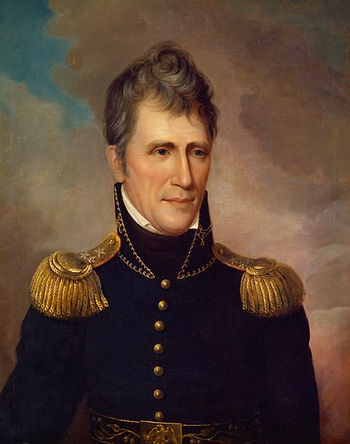January 8, 1815 - Battle of New Orleans
- James Houser
- Jan 8, 2020
- 3 min read
Updated: Jun 1, 2021
January 8, 1815. Andrew Jackson and a rag-tag group of American soldiers, militia, and pirates (yes) defeat the cream of the British Army at New Orleans, inadvertently creating a #1 hit for country/western artist Johnny Horton in 1959.
The War of 1812 was not America's finest hour, to say the least. After a good little run in the first year of the war, the U.S. Navy had been swept from the seas by the reigning King of the Waves, the British Navy. Multiple attempts to invade Canada had been humiliatingly defeated, and the economy was collapsing due to the British blockade.
It's worth considering this whole thing from the British perspective: they had bigger, scarier, FRENCH fish to fry. When the United States declared war in 1812 (hence the name, naturally) the British were extremely busy supporting Wellington's army in Spain. Wellington's foe there, the French Empire (with possibly the best soldiers and generals in the world) made America look like small potatoes. Being attacked by the USA at this point was like a small dog biting your ankle during an MMA wrestling match: irritating, but hardly your most pressing concern. So the British forces in America were on a shoestring most of the time while London poured its resources into the *real* threat.
America didn't have an army to speak of. We barely had a navy. And the disorganized, cranky militia we spun up to invade Canada and go fight the British-allied Indians proved...less than satisfactory in most cases. The exception was Andy J, who proved a capable and inspiring leader. A rich landowner, he was able to put together and organize a decent little force. He and his Tennessee militia had spent the years 1813-1814 smacking around Creek Indians in modern Alabama, but we don't like to talk about that. The whole genocide thing irks us.

In 1814, though, something changed. Napoleon abdicated and was exiled; the British now had a very experienced, well-trained army and navy sitting around twiddling its thumbs. They knew just what to do with it. For reference, the MMA fight is over; now an angry, adrenaline-soaked, roided-up maniac can finally pay attention to the little dog biting his ankle.
First thing they did was send troops to burn Washington to the ground, because that's what you do. After knocking the ever-living stuffing out of American forces in their way, the British burned DC after eating James Madison's dinner. They ran into a little problem at Baltimore - but that's another story for another time. After withdrawing from Chesapeake Bay, the Brits decided their next little raid would be at New Orleans.
Jackson was waiting. He had made a temporary alliance with local swamp pirates that he had previously arrested, set up defensive positions, called out the militia, and made ready. The force was truly a strange combination: US regular troops, Kentucky and Tennessee militia, locals who came out with their rifles, and a significant number of free blacks.
The British screwed up. Even though they were led by Edward Pakenham, Wellington's brother-in-law and an experienced commander, he didn't know quite what to make of the swamps of Louisiana. After fumbling around for awhile and watching his troops die of dysentery, malaria and snipers, he decided to assault Jackson's earthworks.

The American militia had never won a standup fight against British regulars, in the Revolution or later. New Orleans was no different. Detachments caught outside the earthworks were scattered, but then Pakenham's troops ran into a hail of rifle fire from the trenches. Pakenham stopped a bullet with his skull, and his force, blooded and bruised, withdrew days later.

Victory? Yes, but it didn't matter. Unbeknownst to either side, a peace treaty had been signed days earlier. Important? Yes. The Battle of New Orleans was a huge boost to American self-respect and morale. It also reinforced the damaging idea that "good ol' Murican militia can do anything regular soldiers can do." The Mexican War, American Civil War, and, well, every other war would prove that extremely.......optimistic.
But hey, we got a good country song out of it. For the War of 1812, Walter N. Borneman's 1812: The War that Forged a Nation (New York: HarperCollins, 2004) is a good popular account. For a more scholarly work, Donald R. Hickey's The War of 1812: A Forgotten Conflict (Urbana: University of Illinois Press, 1989) is the standard American work. For New Orleans in particular, try Robin Reilly's The British at the Gates: The New Orleans Campaign in the War of 1812 (Toronto: Robin Brass Studio, 1974). Or Osprey Publishing's work by Tim Pickles: Osprey Campaign #28, New Orleans 1815: Andrew Jackson Crushes the British (London: Osprey, 1994).



Comments